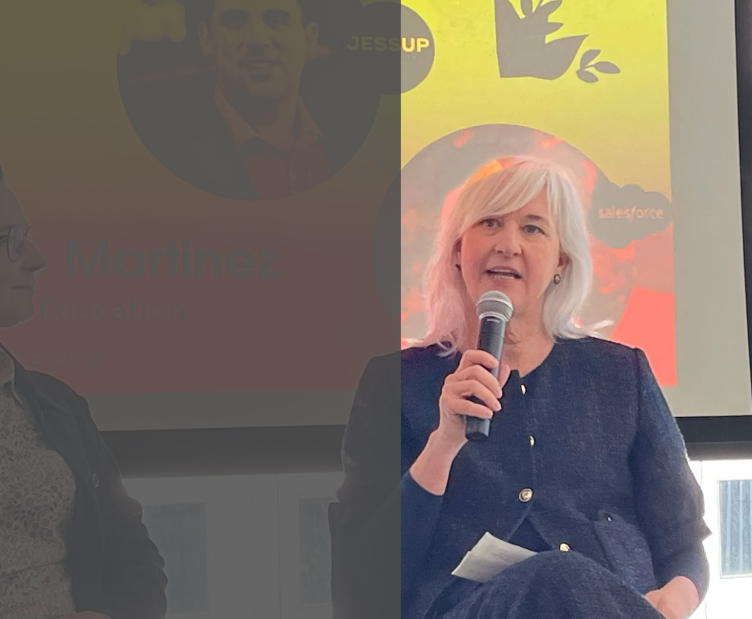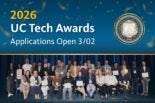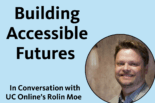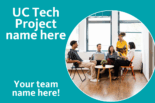By Maggie Beers, Associate Chief Information Officer for Education, UCSF
One of the phrases I’ve returned to most often this year is:
“What got us here won’t get us there.”
This simple line captures a powerful truth: to truly achieve digital transformation, we need new approaches. In the context of higher education and healthcare, it means rethinking long-held assumptions, questioning legacy systems, and—perhaps most importantly—leading with courage. At UCSF, this philosophy is at the heart of our education technology transformation. And central to that work is our implementation of Salesforce Education Cloud, part of a coordinated strategy to build the next generation of digital infrastructure for our learners, faculty, and staff.
A New Role to Support a Core Mission
In 2022, I joined UCSF as the inaugural Associate Chief Information Officer for Education—a role created to support one of UCSF’s three foundational mission areas: biomedical and health professions education. For the first time, UCSF now has an IT team fully dedicated to supporting the education mission..
Our work centers on listening to the needs of the campus community and delivering systems, applications, and services that are equitable, sustainable, and future-focused. My background—starting with a love of digital storytelling, moving into faculty and applied research roles, and ultimately finding a home at the intersection of pedagogy and technology—informs everything I do.
We approach technology not as a solution in search of a problem, but as a tool to support learner success, faculty empowerment, and equitable access to education.
UCSF’s Education Technology Ecosystem
Our digital transformation is guided by a coordinated vision to modernize, replace, or implement for the first time what we call the “Big Four” education systems:
- Student Information System (SIS)
- Learning Management System (LMS)
- Curriculum Management System (CMS)
- Customer/learner relationship management (CRM) – powered by Salesforce Education Cloud
Together, these systems provide the cornerstones of our education environment. Salesforce Education Cloud plays a vital role, enabling UCSF to track more than 200 elements of the learner lifecycle—from funding sources to research output, engagement, and scholarly milestones. These insights allow us to streamline administrative work, ensure compliance, and build more personalized and connected learner experiences.
We’re aiming to deliver a Minimum Lovable Product (our spin on MVP) of our Salesforce implementation by October 2025, with continuous expansion of features and integrations in the years to follow.
Shifting the Culture: Leadership and Listening
UCSF’s culture is collaborative and faculty-driven, and leadership requires thoughtful consensus-building. Within our IT Governance, we use the “fist of five” voting method to allow for dissension, identify where more discussion is needed, and ultimately maintain forward momentum in our digital transformation efforts. This ethos shapes how we approach change. It’s not enough to be right—we also need to be inclusive, consultative, and transparent.
One early decision required pausing an existing system rollout in order to reassess our direction. This wasn’t about correcting the course for the sake of it—it was about ensuring that, together, we made decisions that serve UCSF’s long-term goals. Technology should evolve with the institution, not just repeat past choices.
The outcome? Stronger partnerships, shared purpose, and a clearer path forward. As we continue working with our stakeholders—including deans, program leaders, and academic departments—we keep asking: What is the problem we’re trying to solve? What does success look like? And what tools best serve that outcome?
Data, AI, and the Future of Health Education
The next phase of our digital transformation is focused on deeper system integrations to support 21st Century Biomedical and Health Professions Education. That includes:
- Finalizing our “Big Four” core systems
- Supporting interprofessional education through shared infrastructure and local flexibility
- Shifting toward competency-based and personalized learning
- Expanding experiential education with tools like virtual and augmented reality
- Leveraging data and AI to improve both operational efficiency and educational outcomes
We see data and AI not just as accelerators, but as opportunities to advance digital equity. By improving workflows and surfacing insights, we create more time for human activities: patient care, teaching, collaboration. At the same time, we’re committed to ethical, transparent, and inclusive uses of these technologies—especially as they influence healthcare education and practice.
Advice for Institutions on the Same Journey
To my peers embarking on similar transformations: start with your purpose. Technology isn’t the goal—it’s a vehicle for serving your institutional mission.
Whether it’s research, education, patient care, or global health, your strategy should align with your values. At UCSF, our approach is grounded in a comprehensive five-year IT roadmap, thoughtful investments in core platforms like Salesforce Education Cloud, and a shared vision across leadership and stakeholders.
And remember:
“What got us here won’t get us there.”
That’s not a critique of the past—it’s a call to build upon the past and keep evolving. It takes courage, collaboration, and a willingness to rethink how we move forward—together.
Contact

Associatiate CIO, Education
UCSF







